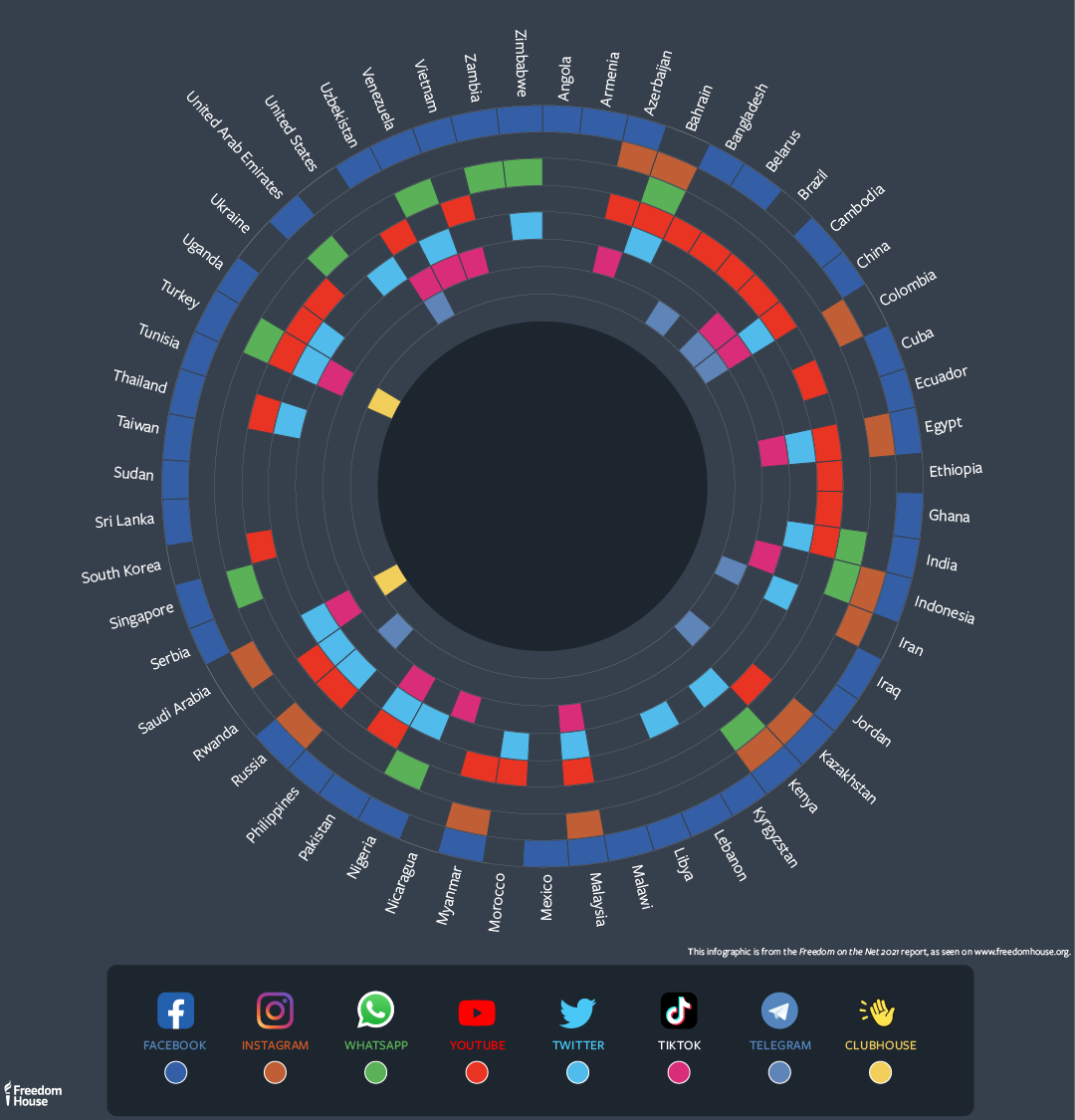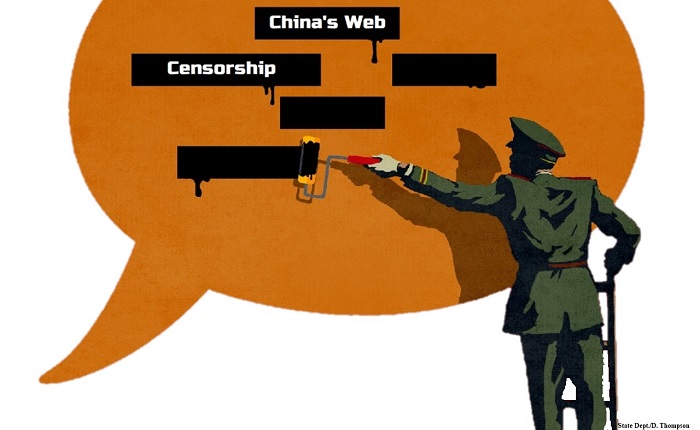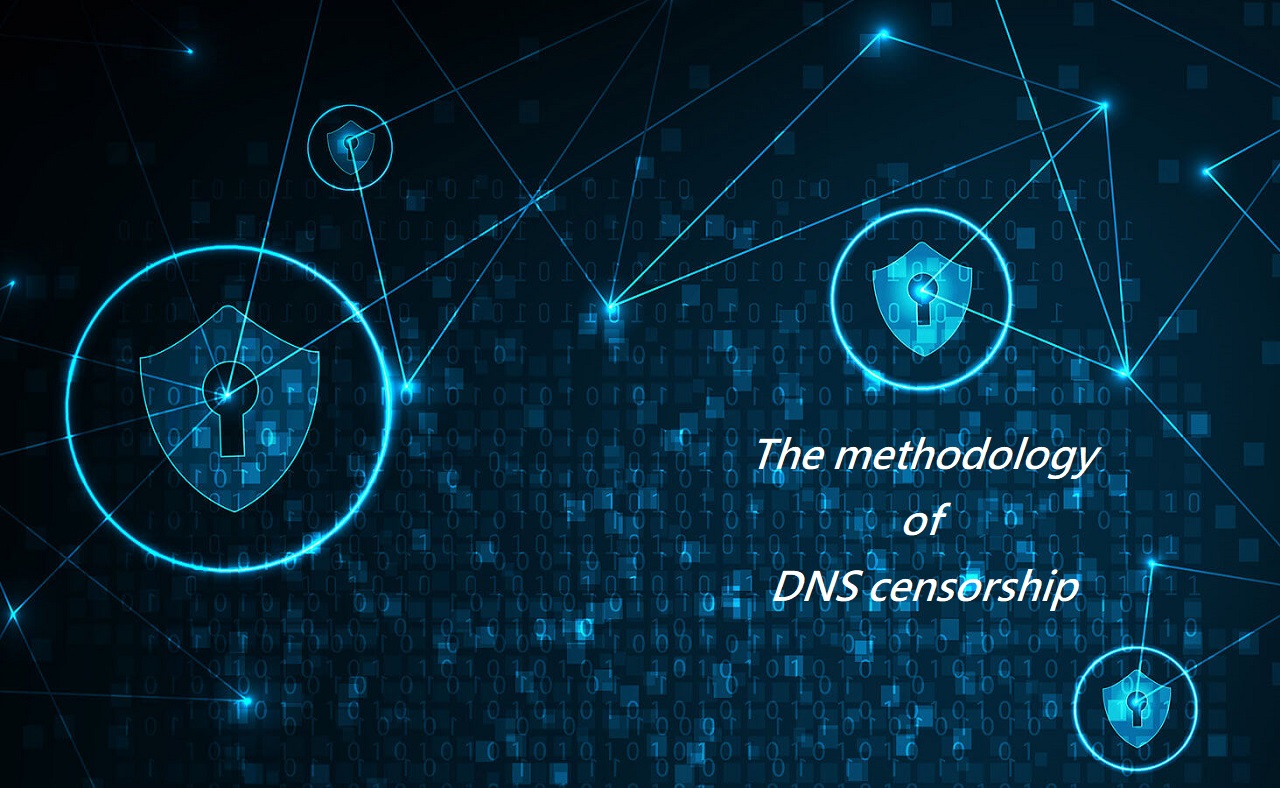Censorship is nothing new. Socrates was censured in ancient Greece in 399 BC for his philosophical convictions. That said, the impact of current Internet censorship on businesses operating in the USA, India, China and some other countries is unprecedented. In this article, we will explore the evolution of restrictions on online services and how they are affecting commerce.
Global Internet censorship, how did we come to this?
The Internet has undergone many changes since its mass adoption in the late 1990s. Web 1.0 was just a set of static pages with no interaction whatsoever, so it was considered a kind of digital library.
It was not until 2005, with the arrival of Web 2.0, that the world finally witnessed the real power of the Internet. Social networks, email, e-commerce, video calls; literally, the internet changed our lives. And the truth is, the world was not prepared for these changes.
As states became aware of the impact of this new technology on society, the economy, and politics, their vision of it changed dramatically. The Internet, which at first was seen as a helpful reference tool, soon became a headache.
Almost all countries had legislation to regulate information in traditional media such as film, TV, radio, and the press. However, the Internet lacked any kind of control; it was a no man's land popularly known as the world wild web. At least for a while.
Regulating digital media was not easy and had its challenges, but eventually, governments found a way to control the flow of information in the digital age.
If you are interested in this topic, we suggest reading The complete guide to the Great Firewall of China (GFoC).
This brings us to the present day, where the growing tendency of governments to regulate content on the Internet directly affects both individuals and businesses. However, the latter, the businesses, have borne the brunt. According to a study by Top10VPN, Internet censorship cost the global economy $10 billion in 2022 so far. This figure nearly doubles 2021 costs, and it’s only halfway through the year.
That’s not surprising. The basis of online commerce is that your audience has access to your products and services 24/7. However, if your website content is blocked, this condition is broken. Whether you operate locally within a country with solid content controls or your business wants to enter a country with such controls, the invisible barrier of censorship will be a difficult obstacle to overcome. As we will see in the next section, the problem for businesses goes far beyond having their website blocked.
How the trend to control content affects business
The proof that Internet censorship is a global trend is recent research by the OpenNet Initiative, which shows that more than 40 countries are using different types of control over the flow of information on the Internet. These countries have taken as a reference internet and information censorship in China to create their own versions of the Great Firewall of China (GFoC).
As mentioned in the previous section, depending on whom you ask, these controls are called regulations, filters, or censorship. Leaving semantics aside, the most striking aspect of this trend is that filtering mechanisms have become increasingly sophisticated.
A few years ago, when people talked about internet censorship in China, they pointed to the blocking of certain websites. Today, governments in many countries are more focused on web apps like YouTube, Skype, Google apps, Zoom, and even some e-commerce platforms.
This type of censorship is not exclusive to Asian countries. Today, such restrictions apply to a greater or lesser degree in the world's major countries such as India, the United States, and the countries that make up the European Union. According to the Freedom House, "internet freedom" has declined for the fifth consecutive year in the United States to the point of banning Chinese-owned platforms WeChat and TikTok temporarily in 2020. If we talk about India, Internet censorship has spread even faster since in addition to filtering content and services; their online access policy varies from region to region. For instance, for the inhabitants of Jammu, Kashmir, and Bihar accessing the internet could be particularly difficult.
Internet censorship in 2022: common methods to censor the internet.

Regardless of the motivations behind these restrictions, what countries have not considered is the collateral damage to businesses.
Think for a moment about the infrastructure we use to do business today. According to a study by Litmus, Gmail remains the top webmail email client with a 75% market share. The problem is that it is no longer just China's online censorship that has made it difficult to use Gmail. Since 2015 the Indian government has banned the use of third-party email services (including Gmail and Yahoo) from its offices. Moreover, selective blocking of social media services has become commonplace in India. This includes making Skype calls within India, which has not been possible for a couple of years. And not too long ago, police in Dheli raided Twitter's offices as it was labeled ‘manipulated media.’
Separately, these restrictions may not seem important, but they create a barrier to trade when taken together. If you are a local business in China or India, you will need to use an online communications infrastructure adapted to the strict legislation of those countries. But what happens when you want to offer your products and services abroad?
A similar case is faced by overseas businesses wishing to enter the lucrative market of these two countries. If your business is based in the USA, most of the services you use, including your e-commerce platform, may be inappropriate for China or India. The opposite is also true since, as we discussed, small and large businesses within China and India use platforms and providers that may not be the best for doing business in the West. For more perspective on this topic, we recommend our posts, Major issues facing websites hosted outside of China, and A guide to web hosting in China
It should not be forgotten that the above is only the tip of the iceberg. It's not just about which email client or video calling app you can use. Distributing content (of any kind) in China, India, or the United States is subject to scrutiny. Indeed, the root of Internet restriction in China and other countries has to do with the flow of information. For example, broadcasting a live event can be quite a challenge. In countries like China, where live streaming is booming, this can seriously affect profits.
In short, the impact of Internet censorship in China, India, and other countries affects businesses in multiple ways.
- Communications. Your business should be sure to use authorized email providers in China, India, the United States, and Europe. This same principle applies to video calling, chat, and messaging applications.
- Social media. Keep an open mind when it comes to social media promotions. The best strategy in countries like China and India is to favor local social networks.
- Infrastructure. Both the provider hosting your website and services and your content delivery network (CDN) must be able to function normally and comply with government guidelines.
- Content. This is the most crucial point. Both your website and your services must be in line with local legislation. This minimizes the possibility of your website suffering from interruptions or slowdowns.
For more information on overcoming these obstacles, we recommend reading The Great Firewall of China - China website testing and monitoring.
At this point, you may be wondering how to cope with all these challenges. Before addressing that issue, it is essential to understand the mechanisms used to censor the Internet.
How countries censor the Internet
We have talked a lot about China's internet restrictions as well as the globalization of censorship of online content. The question is, how do governments manage to filter content? Here is a list of the most commonly used methods.
Blocking access to the Internet. This is undoubtedly the most extreme method of censorship, employed by only a few countries, including China and India. It either limits Internet service access to a part of the population or only enables content approved by the country's legislation.
To do this, direct control is exercised over ISPs (Internet Service Providers). In case you want to go deeper into this, we suggest you read our article, Is my website blocked in China?
Removing web pages from search engines. This is one of the most effective censorship methods used today and is based on the fact that the lion's share of organic traffic coming to a website comes from search engines. For that reason, if your website stops appearing in these results it is as if it were blocked since the volume of traffic will be severely affected.
Read more on: How the Personal Information Protection Law (PIPL) changes your online business in China

Blocking IP addresses. This is a method of selectively blocking access to certain IP addresses. The problem with this is that a large number of users can be affected when blocking the IP of a hosting provider or web service.
Filtering online content. This is another method of censorship where advanced algorithms search for certain keywords. When they find them, they temporarily block the content and, in some cases, the service that distributes it.
Regarding this topic, you may be interested to read our post on 10 unusually sensitive topics in China and how to talk about them.
Self-censorship. Hosting and content distribution services operating in China and other countries such as India must comply with stringent rules. If they fail to comply, they risk losing their license, so many times, these companies, including ISPs, CDNs, and hosting companies, perform self-censorship to avoid these penalties. To that effect, we suggest you read Obtaining an Internet Content Provider (ICP) license in China for more information.
Methods to circumvent Internet censorship
Despite the sophisticated methods used to filter content, there are a few ways your business can circumvent this fence. These methods include using VPNs (Virtual Private Networks) that obfuscate your IP address and allow you to browse outside China's Great Firewall, using DNS (Domain Name Server) servers that are not controlled by the government or using networks such as TOR that allow you to browse with some privacy.
It should be noted that none of these methods is 100% guaranteed. It is also important to note that the use of VPN, DNS servers, and other obfuscation methods is prohibited in China, and India, and is frowned upon in the United States and many other countries. Moreover, these methods at best only allow your business to access blocked websites; they do not solve the problem of your website or application being available in those countries. To ensure that your website is not blocked, the most effective solution is to rely on specialists in the field. GoClick China provides you with a comprehensive solution with all types of manual and automated testing to ensure your website gets seen by your target customers and performs just as well as its local counterparts.
For more perspective on these topics, read our article VPN site maintenance vs. manual site maintenance: Which is better for your website in China?
Conclusion
The ability to reach your customers through social media, video streaming, or your website is severely limited due to the worldwide trend of filtering all types of content. While China tops the list of the most complex countries to do business in, it is not the only one where internet restrictions are in place.
At GoClick China, we specialize in getting your website seen by your target audience as if you were a local business in China. To learn more about succeeding in China, check out our other articles.



